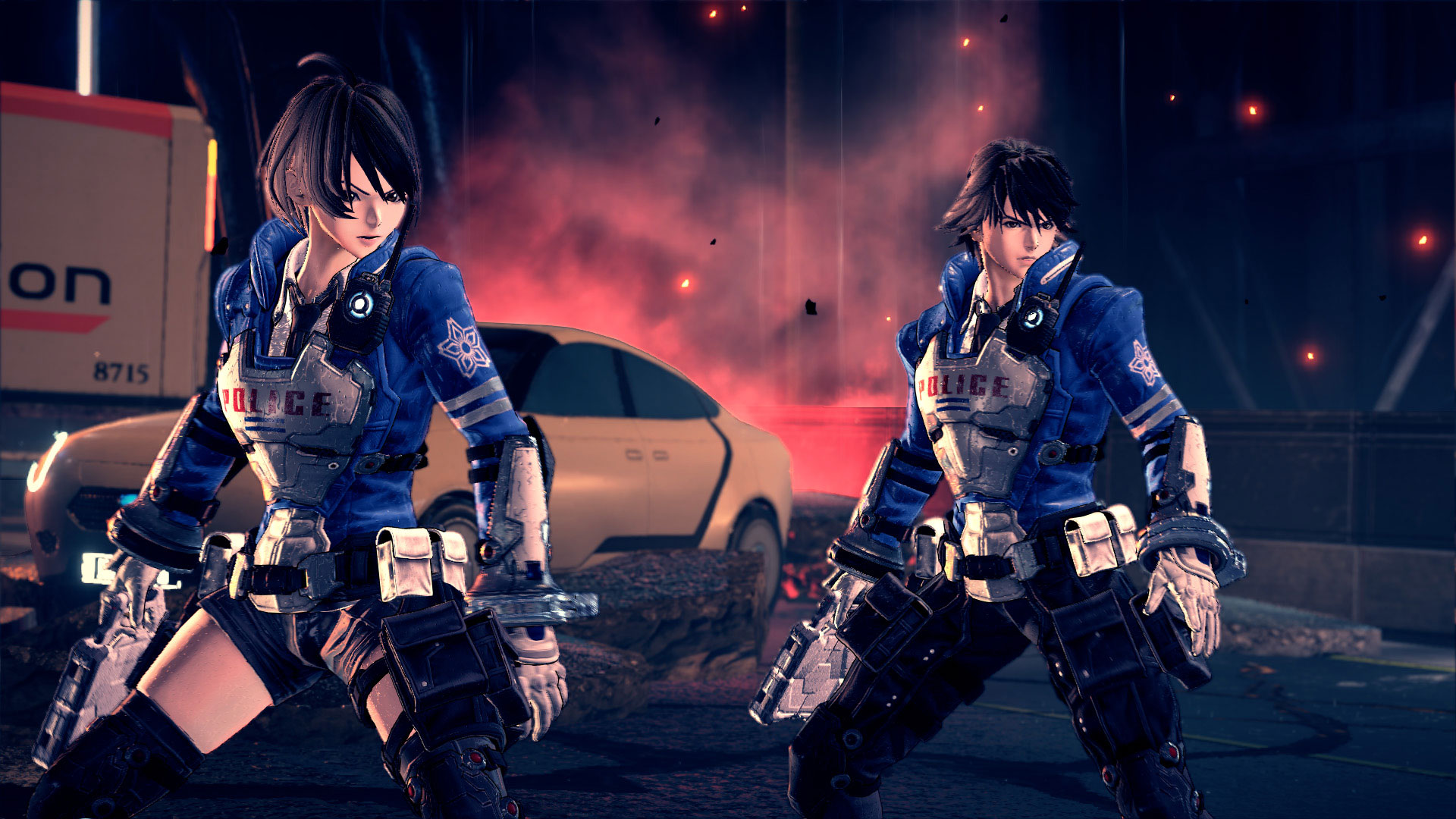GamesRadar+ Verdict
Astral Chain is an exceptionally fun game when it’s embracing its anime core and is channelling the pure absurdity of the over-the-top action, but is let down by some poor camera angles, bad pacing decisions and a predictable story.
Pros
- +
Fluid feeling combat
- +
Great soundtrack
- +
Excellent boss design
Cons
- -
Dodgy camera
- -
Predictable story
- -
Poor pacing
Why you can trust GamesRadar+
Humanity is on the brink of extinction and has retreated to an artificial floating city called The Ark. Things are good here, until strange gates leading to another dimension start appearing, and strange creatures called Chimeras emerge from them and start causing havoc. It’s here that your character – either anime dude or anime dudette – picks things up.
I hate to start things on a bad note, but the game chose to do it, so it’s not my fault. You start the game with a motorcycle sequence, which isn’t the only one in the game, which is unfortunate, because they suck. You basically move left and right and hold attack, it’s an intensely dull introduction to the game. They say you don’t get a second chance at a first impression, which will make me wonder for years to come why Astral Chain leads with this section over anything else.

Release date: August 30, 2019
Platform: Nintendo Switch
Developer: Platinum Games
Publisher: Nintendo
But thankfully, it's not too long before you get to the good stuff: the combat. Although it starts out in a fairly basic form, and I know we're a long way from its final form. Initially, you only have access to your own weapons and moves. You wield a weapon called an X-baton, which allows you to change its form to attack, though you unlock that ability after a mission or two. But, as you progress, you'll reach the moment you’ll have been waiting for, the main hook of the game - you get your Legion.
We are Legion
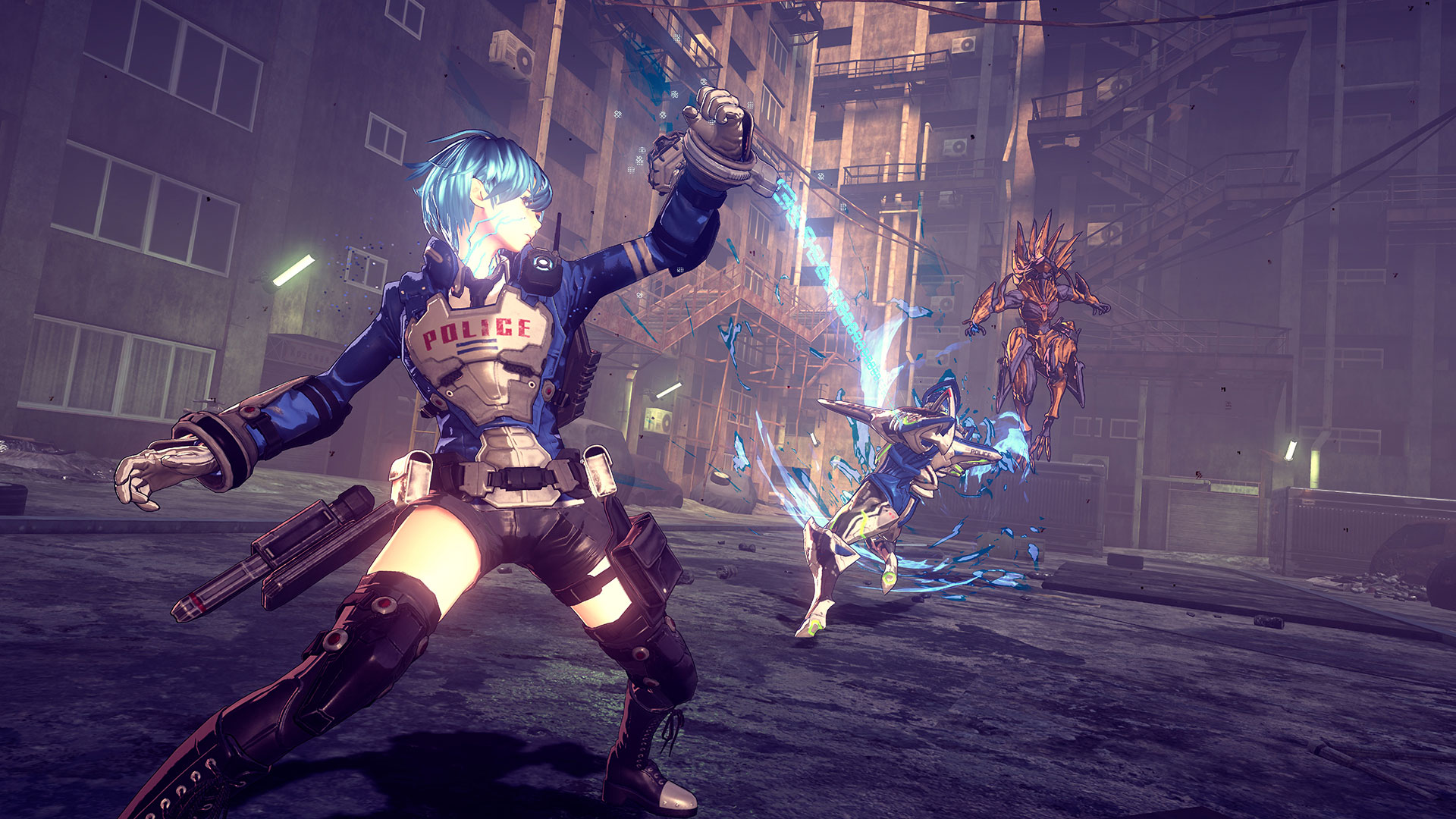
Stored inside a bit of kit called the Legatus, your Legion is initially the Sword variant. The titular Astral Chain is used to enslave and brainwash a Chimera into fighting for you, and they aren't happy about it either. One of the mechanics seeing them trying to break free from the chain if you use them too much, which makes for an uncomfortable play experience. After all, the idea of taking free will from another living being is an issue with a morbid history, but here it attempts to play into the somewhat messed up situation humanity has found itself in. However, that doesn't mean it ever felt truly right, and the characters themselves never question the situation either. It could be that this uneasy feeling was the intention, but it's hard to say without speaking to the developers directly.
However, leaving that aside for a second, as you progress through the game, you’ll unlock new Legions and new abilities for them. There’s a lot to choose from as you go, but the choices doesn’t always feel meaningful, as often the things you unlock are passive buffs or skills you’re unlikely to use. Of course, some of that depends on your own playstyle, but even the new Legions themselves don’t always feel meaningfully different. There are eventually several different Legions to pick from – Sword, Axe, and Arrow – but although you might think that the Sword or Axe Legion would be bad at range, you can simply throw them at enemies and then pull yourself towards them, making the Arrow Legion feel a little redundant.
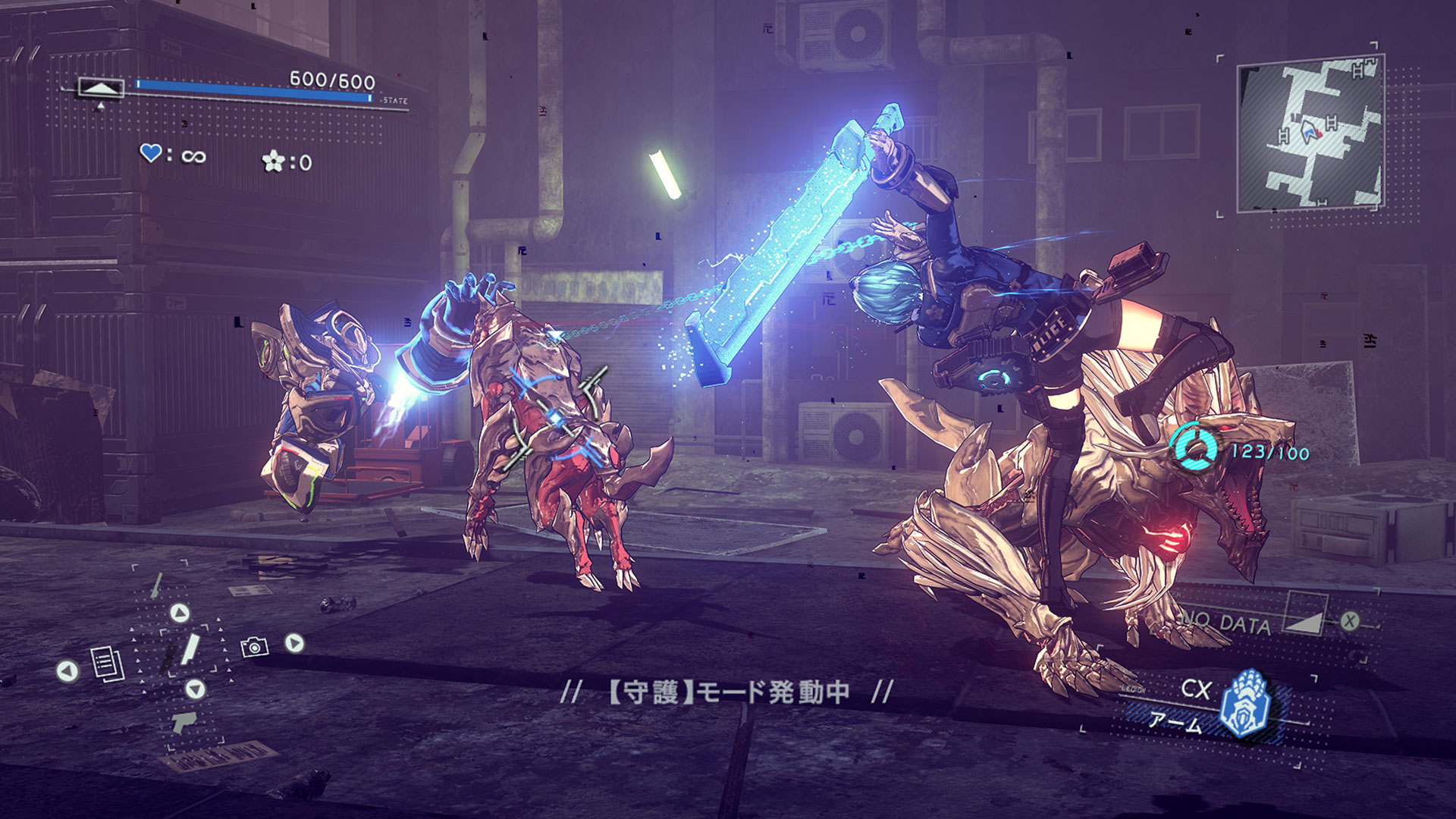
However, because Platinum has such a good reputation when it comes to combat, you'd expect the action to be top notch. But, the game takes a while to reach full combat climax, and when it does it can never quite match up to Platinum's best. However, the mix between using your own skills and timing things with your Legion’s makes each battle feel like a particularly violent ballet. You can also time button presses to unleash sync actions, which can take the form of anything from an all-out assault, to a recovery move, or even powerful counter-attacks. You feel incredibly powerful when it all clicks together; it’s just a shame that you don’t get some of the best skills until near the end of the game.
The best moments come when fighting off against the massive bosses, as this is when you can just unleash everything you’ve learned about the combat. It helps that the music supports these moments perfectly, and the game does a great job with its set pieces, which help turn the already epic boss battles into something truly brilliant.
But what really holds the combat back is the camera, which has issues when exploring, but none are as egregious as when you’re trying to fight a giant demon. While many of the fights take place in big open arenas, there are a few that take place in tighter indoor spaces. When this happens, you'll find the camera getting stuck on the walls a lot, making some of the fights a lot harder than they should be.
Well, my dear Watson
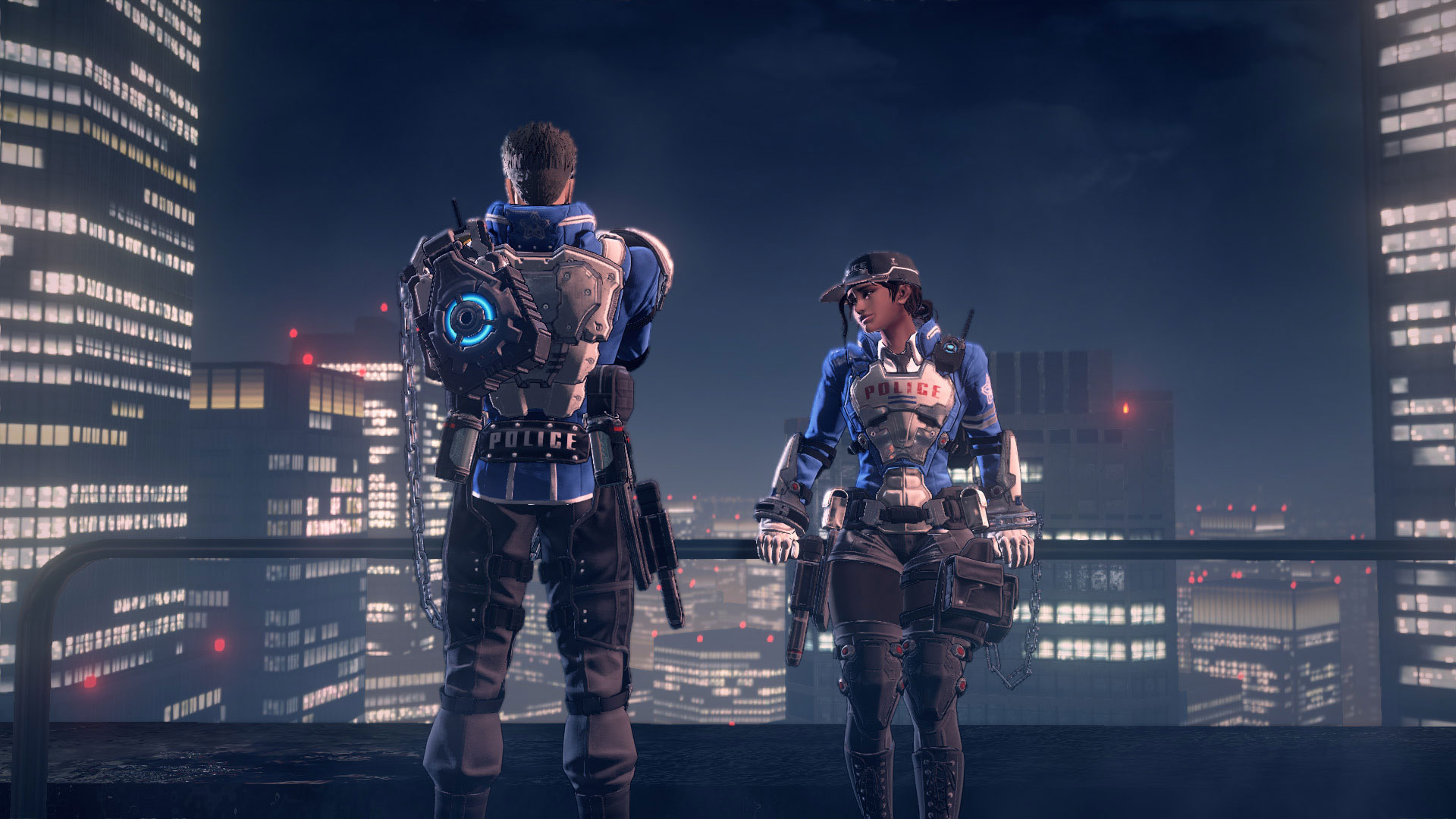
Outside of combat, each story chapter consists of a single a case file to work through, with each file around a dozen case missions. The critical cases often have some fun bits of investigating using your IRIS vision, such as tracking down keywords and clues. You then use those clue to answer a quiz at the end, choosing keywords as answers in order to accurately piece the case together. The side missions, though, are more repetitive, usually involving fighting some enemies or closing one of the game's many inter-dimensional rifts. There are also dungeons to make your way through – complete with some cool puzzles and hidden routes – and it feels like it's here the game feels at its best outside the combat.
Thankfully though, it's a system that lets you explore at your leisure for the most part, and you get a nice heads-up before taking on anything that will lock off the level – a good way of making sure you’re done with that area and any quests you might want to finish.
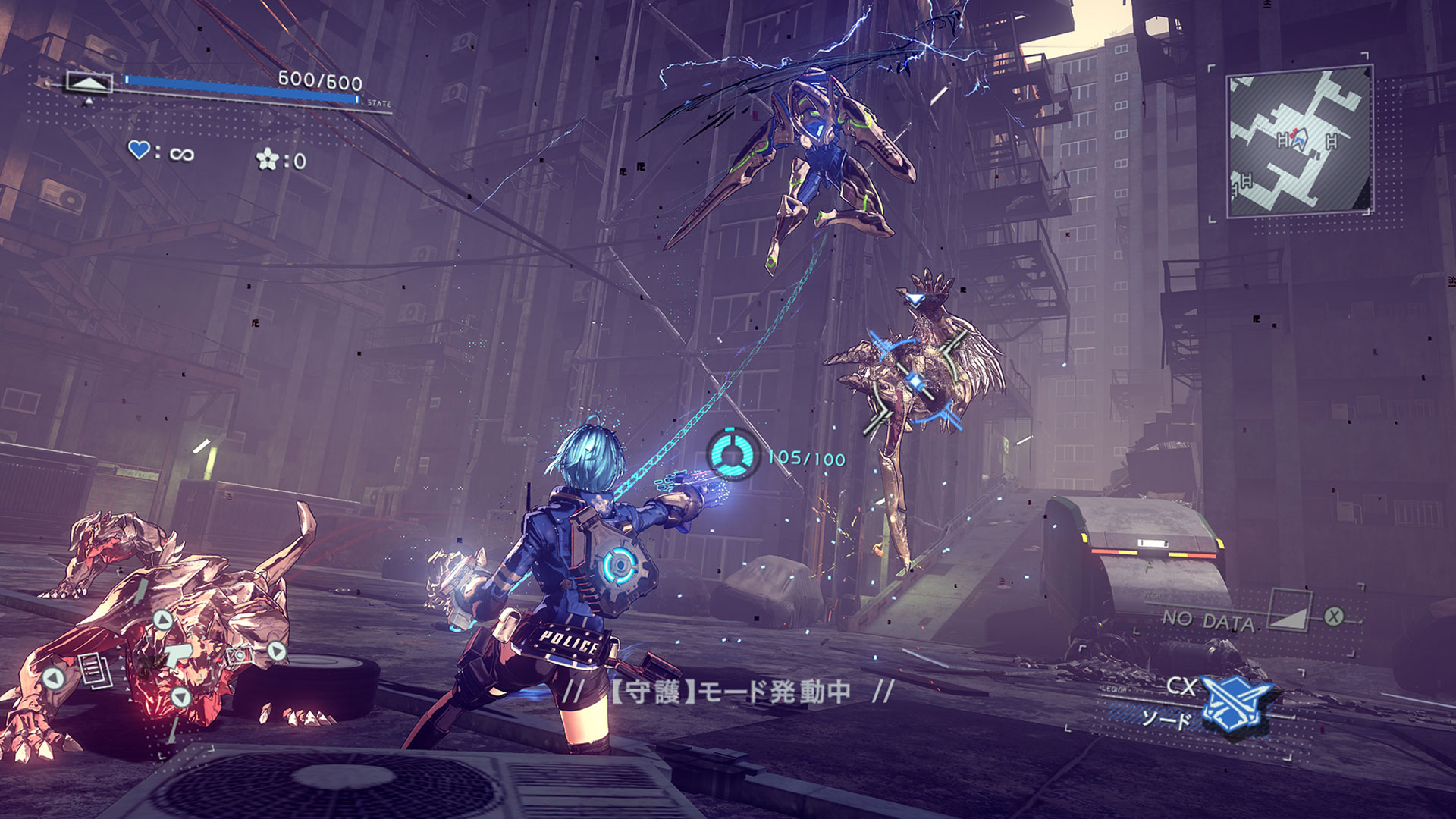
However, that doesn't detract from the fact the overall flow of the game feels a bit odd. In-between missions you’ll find yourself back at HQ, where there will be a quest or two to deal with, and you can upgrade your gear or resupply. But these sections can last sometimes up to an hour, despite the fact that most of the time you’ll be eager to rush back out to the next mission and back into battle.
Perhaps the biggest issue when it comes to pacing is the random stealth sections thrown in for good measure, which feel horrifically out of place in an action game, especially when it doesn’t always work. This is in part due to the jumping mechanic. You learn early on that you can cross gaps by jumping to your Legion, which is fine in theory, but in practice doesn’t always work. It's an issue that plagues some of the later levels, and the frustration is only further enhanced by the fact it'll then make you redo vast swathes of section to get back to the section that you fell from.
An anime heart
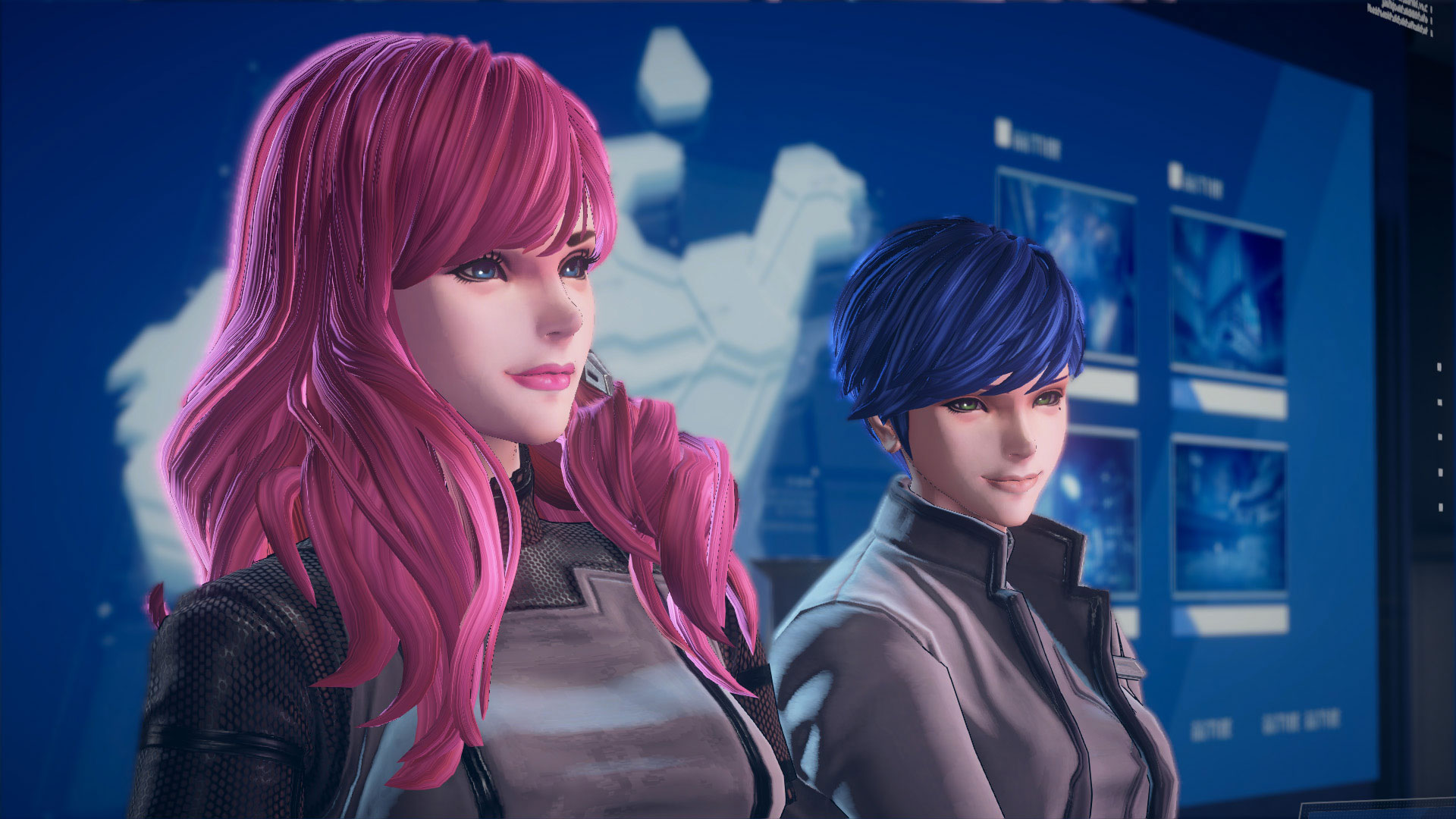
The storyline is very much a classic anime affair, so much so in fact, that it becomes incredibly predictable. It’s not bad; it’s just not very original. The game truly shines when Astral Chain really embraces its anime heart, and I wish it had leaned more consistently into that. Early on, summoning your Legion has you performing an over-the-top series of movements, which harks back to classic anime like Guyver or shows like Power Rangers. It’s enough to put an ear-to-ear grin on your face.
When you couple these moments with the exceptional soundtrack, some of which involve a classic anime style opening and closing song, then it really feels like this might be the best anime game around. Also, as a neat touch, during the end credits, your controller HD rumbles along with the music.
One thing from anime that the game could have left out was the over-the-top boob jiggle, which just goes to show that some people still don’t understand how bras work, and that human beings aren’t actually made out of jelly. It’s not featured often here to be truly problematic, but it’s still present enough to be cringe-inducing.
The whole game feels like it’s often at odds with itself, with characters being cliche despite good voice actors; the story being over-the-top and fun but also very predictable; and the combat being creative, but never offering the variety you’d like given all of the options available to you. It’s an enjoyable game, but not a memorable one.
Jason Coles is a freelance writer and editor, covering gaming, tech, and fitness. Jason has written guides for GamesRadar+ and PC Gamer, reviews for Play magazine, and a host of other content for the likes of Eurogamer, Dicebreaker, and PCGamesN. Jason also served as the editor of The Indie Game Website and is passionate about helping new writers break into the industry with his Word Count Mentoring initiative.
